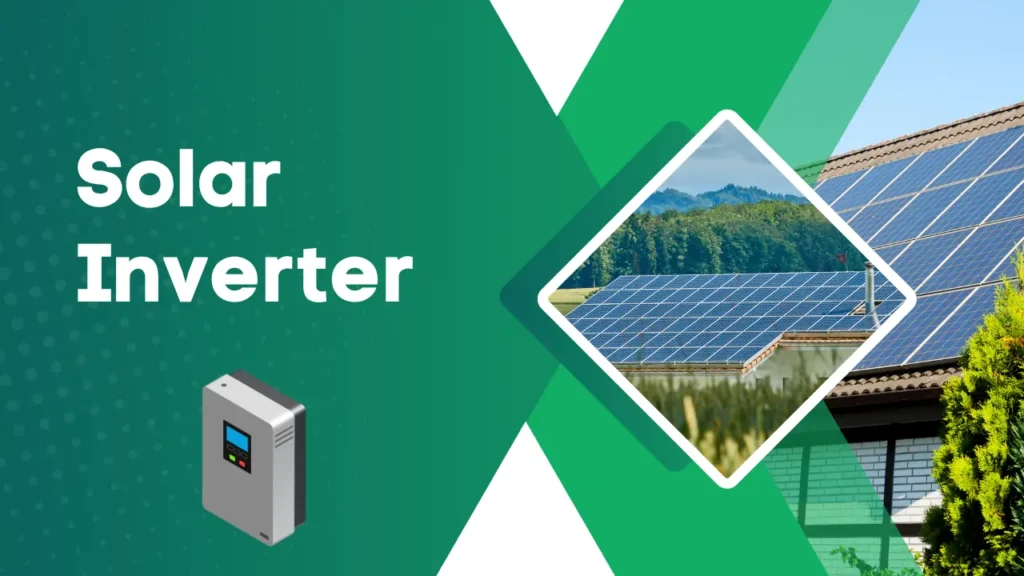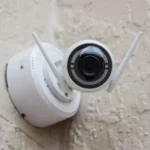Changing to solar energy is a good move. It makes you save energy for your home and it helps you save on electricity bills. You can also reduce your dependence on the grid. But you may wonder how to choose the right solar inverter for your home.
You know that solar panels turn sunlight into electricity. But the electricity they make is DC. And your home appliances need AC to work. This is where a solar inverter comes in. It converts the DC electricity to AC that your home can use.

Why a Solar Inverter is Important
Solar panels are not what you need the most. You also need a solar inverter. Without it, a solar panel cannot work for your home properly. Here is why it matters for you:
- Converts DC to AC: Your appliances need AC power to work properly. So the inverter makes this possible.
- Maintains voltage stability: Sudden changes in voltage can damage your electronics. A solar inverter makes sure your home gets energy safely.
- Supports solar monitoring: Modern inverters allow you to see how much energy is being used. It helps your solar system work better for you.
- Enables grid connection: You can use an on-grid inverter. It helps you to send extra energy back to the grid. You should make sure the inverter meets your needs.
Types of Solar Inverters
Understanding the types of inverters can make your decision much easier:
| Type of Inverter | How It Works | Best For |
| String Inverter | Connects a string of panels in series to a single inverter | Standard residential homes with unobstructed sunlight |
| Microinverter | Each panel has its own small inverter | Homes with shading issues or irregular panel orientation |
| Hybrid Inverter | It combines solar, battery storage and grid connection | If you are looking for backup power and good energy |
You need to look at your home. It can help you to see how much sunlight every part of it gets. You should also think about how much electricity you use when you choose the right type.
How Can You Choose the Right Size
Choosing an inverter with the correct size is important. Here is how you can make the correct choice:
- Calculate your energy needs: You should know which appliances you want to work on energy. You need to check their wattage. Also, knowing how many hours you use it every day is important.
- Consider peak load: Your inverter should have good load capacity. It should be able to handle all your appliances together.
- Check inverter rate: Inverters come in kilowatts. A 3 to 5 kW solar inverter is usually enough if you have a 3BHK home. But this can change based on how much you use it.
Features to Look For
Know these features when you select a solar inverter:
- Efficiency rating: Higher efficiency means you can use more solar energy.
- Remote monitoring: Many inverters allow you to check how they work through an app.
- Warranty: Look for inverters that give you a long warranty period. It can be from 5 to 10 years.
- Safety features: You should protect your devices. Many damages can happen from surges, overheating and sudden voltage changes.
- Compatibility with batteries: Make sure your inverter can work well with batteries. It helps you if you are thinking about adding storage.
Installation Considerations
- Proper wiring: Use the correct wiring. It makes sure you get safe and good performance.
- Compliance with regulations: You need a grid-tied system. With this, you need to follow your local safety and connection rules. This keeps everything safe. It also helps you to work on them properly.
- System optimisation: You can ask experts where to place your inverter for it to work well and last longer. They can tell you the best spot.
Common Myths About Solar Inverters
It is easy for you to get confused when there are many common myths. Let us clear things up:
| Myth | Truth |
| Solar inverters are only for large homes | Small and medium homes benefit from inverters too |
| Solar inverters need constant maintenance | Modern inverters are largely maintenance-free |
| They don’t last long | Good-quality inverters last 10 years or more |
| Batteries are mandatory | On-grid inverters can work without batteries, but hybrid systems are needed for storage |
Cost Considerations
You need to choose a solar inverter correctly. It is not just about technical specifications. Budget is also important here. Here is what affects the cost of it:
- Inverter type: Microinverters have a higher cost than string inverters.
- Capacity: Higher kW ratings are more expensive.
- Features: Smart features can increase the price. It can be like remote monitoring and hybrid compatibility.
- Warranty and brand: Choose a trusted brand. It should give you a longer warranty and might cost a little more. But it keeps you worry-free.
Benefits of the Right Solar Inverter
You can enjoy several benefits when you select the correct solar inverter:
- Reliable power supply
- Lower electricity bills
- Energy independence
Common Home Solar Installation Mistakes.
Conclusion
Choosing the correct solar inverter can make you overwhelmed at first. But you can make a smart choice. First, you need to understand your energy needs. You get to choose from different types. So think about the features you need. You can also get advice from experts.
A solar inverter is what makes your solar energy system work. It changes sunlight into electricity. With a good inverter, your home stays powered efficiently.





